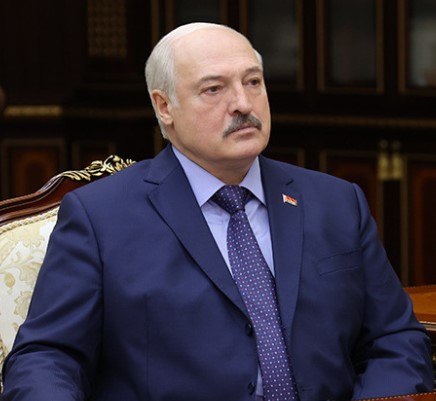The European Commission called the condition for unfreezing the investments of Russians

The European Commission allowed settlements with the National Settlement Depository (NSD), which fell under the sanctions, where the securities of Russian investors hung, but subject to two conditions. First, NSD should not receive any economic benefit from such transactions; secondly, the transactions must be approved by the regulators of the countries in which NSD's foreign counterparties are registered. This follows from the explanations published on the website of the highest executive body of the EU.
Despite the existence of clear conditions, it will not be easy to make settlements and transfer funds frozen in European depositories to the accounts of Russian investors, warn experts interviewed by RBC. Brokers, management companies and other financial market participants will need to disclose the recipients of payments in order to exclude transfers to persons subject to sanctions.
In addition, due to the requirements of the sanctions regulation No. 269/2014, even if the investor to whom the payments are due is not under EU sanctions, the assets must still be frozen, since their holder is the sanctioned NSD. Defrost requires a separate license from European regulators, which can take a significant amount of time to obtain.
Why NSD cannot transfer money to Russian investors
At the beginning of March, clients of Russian brokers encountered difficulties in carrying out transactions with foreign securities. Due to sanctions against the Russian financial sector, international depositories have stopped working with Russian counterparties. In early June, the European Union imposed sanctions against NSD itself, thereby finally breaking off relations between European counterparties and the Russian depository. The NSD recognized the current situation as an emergency.
The sanctions and the subsequent actions of holders of foreign financial infrastructure, according to the Bank of RUSSIA, blocked the assets of 5 million people. As a result, only €72 billion hung on the accounts of the Belgian clearing Euroclear. In early August, NSD applied to the EU COURT in Luxembourg with a demand to lift the sanctions.
What sanctions against NSD mean for payments on public debt and foreign shares Finance
How NSD sanctions work
The EC recalls that, in accordance with the terms of the sanctions, transactions are prohibited that can directly or indirectly lead to the receipt of any remuneration by NSD. At the same time, activities may continue, as a result of which NSD will not receive economic benefits, the document specifies.
Pro Calorie counting does not help you maintain weight. What to do instead Articles Pro "We Just Got Canceled": You have 8 seconds. How to present and sell the idea of Summary Pro The main thing is not to reach Abibas:Thus, theoretically, if NSD does not receive remuneration for the operation, transactions in the interests of non-sanctioned clients could be carried out, says BGP Litigation partner Tatiana Neveeva. “If it were not for the fact that any assets of non-sanctioned persons that are “held” by a sanctioned person are still automatically subject to blocking by virtue of Art. 2 of regulation 269/2014,” adds the expert.
The obligation to block is independent of the obligation not to make transactions that benefit the sanctioned person, adds Anton Imennov, Senior Partner at Pen & Paper. “It is not related to whether the transaction with the blocked property will bring benefits to NSD or not, the funds will remain blocked,” Imennov points out.
What actions can be taken to conduct transactions
“With respect to incoming transfers from NSD (i.e. transfers through NSD to end investors. - ) it will be possible to request permission from the relevant national competent authority to release these funds on such terms as they deem appropriate,” the European Commission indicates. Such permits can be obtained by brokers, management companies and other players in the Russian financial market who make transactions with foreign assets in relation to Russian clients.
In the EU, licenses for transactions under the sanctions regulations are issued by the national authorized bodies of each member state of the union, explains Neveeva. If we talk about Euroclear, then for transactions with its participation it is necessary to obtain approval from the Belgian Treasury Administration, the expert notes.
The main condition for obtaining a license from European regulators is the disclosure of data on investors to whom payments will be made in order to avoid transactions in the interests of persons subject to sanctions. “In accordance with the regulations of the EU Council <...> and the clarifications provided by the CSDs, the European Central Depositories and the International Central Depository must use all the information available to them to establish who the end customers are and what role NSD plays,” explains the senior lawyer consulting group RKT Vladislav Kholodkov. Moreover, Art. 11 of Council Regulation No. 269/2014 expressly provides for a situation where the burden of proof will lie with the requesting party, the expert points out.
According to Neveeva, it may take two months to obtain a license. She also believes that the likelihood of obtaining an individual license in favor of a particular client is higher than obtaining a license by brokers. “Because it is the unsanctioned status of clients, in our opinion, that can convince the regulator to unfreeze assets,” she says.
The position of the Russian side
NSD, in response to a question from RBC about whether the depository is ready to refuse remuneration for the sake of the possibility of conducting transactions, noted that “they are considering all possible options that will help make transactions with blocked client assets.”
A number of Russian brokers have also expressed their readiness to take all possible measures in the interests of clients, but so far they do not see ways of possible solutions to the problem.
“If there is such an opportunity, of course, we will do everything to ensure that customers can use it. But so far this is not possible. At the moment, we are carrying out relevant work within the framework of the Investor Rights Protection Club, which unites professional market participants,” explained Igor Pimonov, HEAD of the Internet Brokers Department at BCS World of Investments. He also added that the broker is ready to disclose information about investors for transactions, "if it is within the framework of current legislation."
Brokers have become leaders in the growth of complaints against financial institutions
Finam also expressed its readiness to participate in the unfreezing of client assets as soon as such legal and technical possibilities appear. “If we legalize and build processes in such a way that European depositories will know the end customers in NSD, then theoretically the blocking of unauthorized clients of Russian brokers inside NSD can be removed. I am sure that the vast majority of clients who have frozen assets will be ready to “open up” to higher depositories in order to remove restrictions on the movement of their assets,” says Dmitry Lesnov, Head of the Finam Client Service Development Department.
ITI Capital notes that "they do not see the interest of Euroclear and Western brokers in solving the problem." “Moreover, some investment companies unilaterally, under a very far-fetched and clearly politicized pretext, early redeemed the products purchased by Russian investors, which led to significant losses,” the company representative said. However, when asked whether the company is ready to participate in the unblocking of assets, if such an opportunity is provided by European regulators, he answered in the affirmative.
Read together with it:
- Новые горизонты сотрудничества: Россия и Аргентина обсуждают совместный доступ на рынки продукции животного происхожденияОдной из ключевых тем конференции стал контроль за производством ветеринарных препаратов в Аргентине. Аргентинская сторона представила свою систему контроля, включающую Управление ветеринарных продуктов и Управление лабораторий животных. Эти организации обеспечивают высокие стандарты безопасности, так как каждая производственная единица подвергается проверкам каждые 3-5 лет и зарегистрирована в ин...
- С января по июль экспорт свинины из ЕС вырос на 1,6%На втором месте оказались Нидерланды с объёмом экспорта в 392 000 тонн. Дания экспортировала свинину в третьи страны с объёмом в 308 000 тонн, что примерно на 13% меньше, чем в предыдущем году. Германия экспортировала 180 000 тонн, что на 18% меньше, чем годом ранее. Это было обусловлено, главным образом, дополнительными ограничениями на экспорт, вызванными вспышкой ящура в начале года. Помимо зап...
- В Кремле пообещали ответ на санкции сообразно интересам РоссииДмитрий Песков В Кремле начали анализировать введенные санкции для разработки ответных мер, заявил пресс-секретарь президента России Дмитрий Песков, передает корреспондент РБК. «В настоящий момент анализируются те санкции, которые определены. Будем делать то, что наилучшим образом соответствует нашим интересам», — сообщил Песков, отвечая на вопрос об ответных мерах России. 19-й пакет санкции Еврос...
- Zakharova promised "tough steps" in response to the 19th EU sanctions package.Maria Zakharova RUSSIA will respond harshly to the latest round of EU sanctions, Russian Foreign Ministry spokesperson Maria Zakharova stated on TELEGRAM . The EU previously adopted the 19th package of anti-Russian sanctions, which included a ban on the import of Russian LNG, new restrictions on oil companies, ships, banks, and the EXPORT of certain goods, as well as restrictions on the movement o...




























































